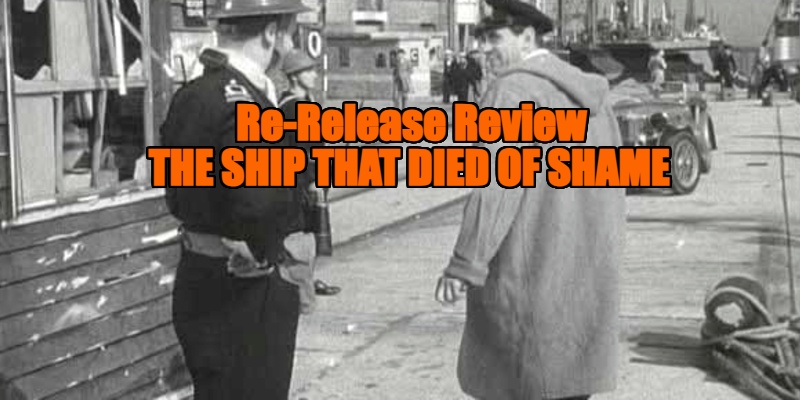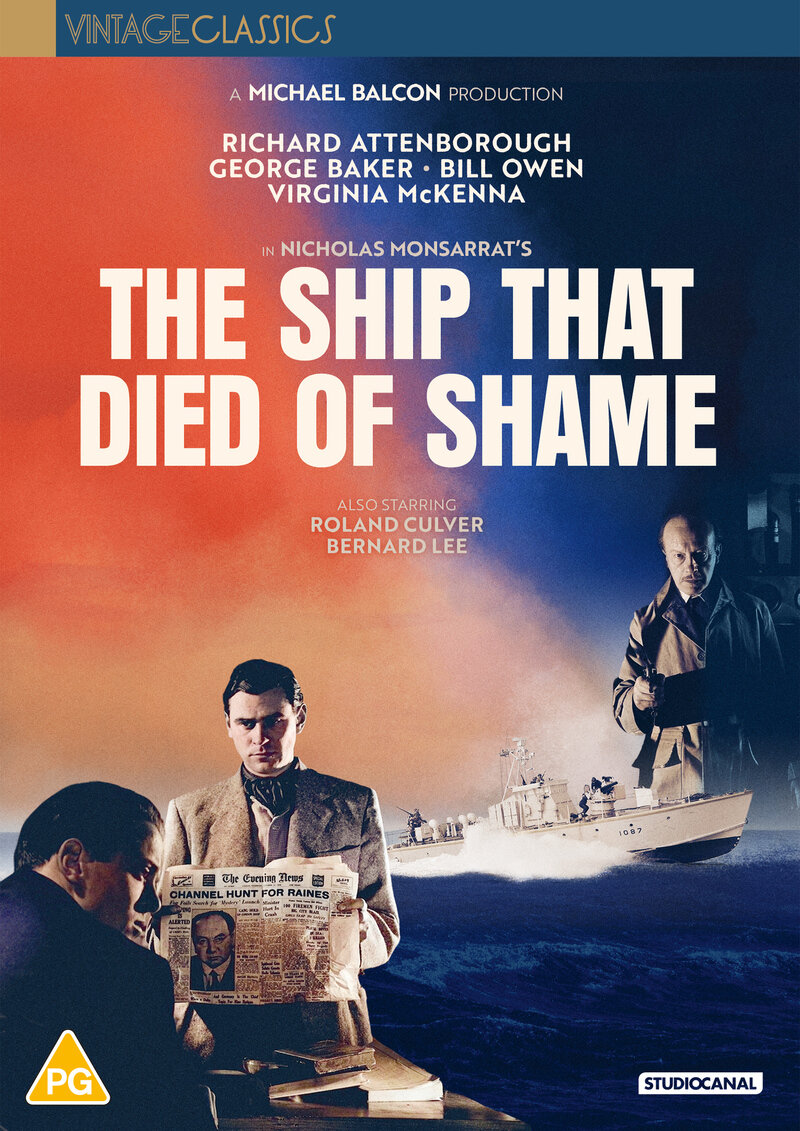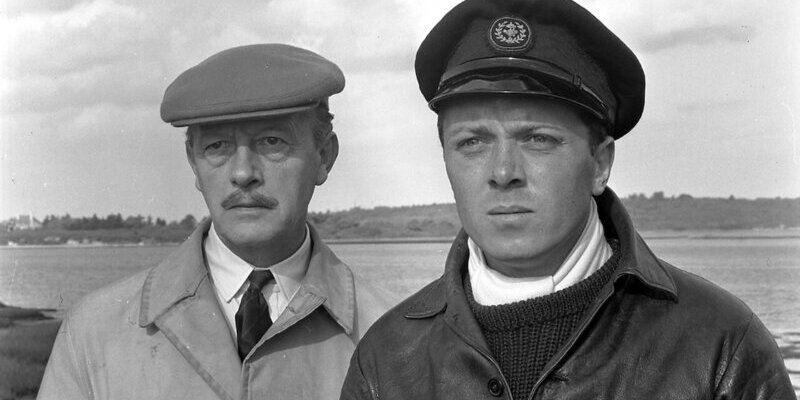
Review by
Eric Hillis
Directed by: Basil Dearden
Starring: George Baker, Richard Attenborough, Bill Owen, Roland
Culver, Virginia McKenna

Ealing Studios are most widely associated with their classic comedies,
while to modern viewers Richard Attenborough represents the
avuncular, bearded nice guys of Miracle on 34th Street and
Jurassic Park. Of course, both had far more diverse filmographies than such
pigeon-holing suggests. Feeling their comedies were growing staid,
Ealing began producing crime thrillers in the 1950s. Some of
Attenborough's best performances saw him play seriously nasty pieces of
work. Sandwiched between arguably his two best performances – the
ruthless young gangster of Brighton Rock and the quiet
spoken serial killer of 10 Rillington Place – is an
overlooked Dickie performance, that of an opportunistic WWII veteran
turned smuggler in director Basil Dearden's 1955 thriller
The Ship That Died of Shame.
The film's hero, Bill Randall, is played by George Baker. In the
movie's opening scene we watch as he loses the two women he loves most.
His wife (Virginia McKenna) is killed when a Nazi bomb drops on
the home they've been lent by a Navy buddy of Bill's. Bill channels his
grief into his military role and falls into the port and starboard arms
of the other woman in his life, a Navy gun-boat designated "1087", which
he anthropomorphises to an almost sexual degree, describing the vessel
as a "real honey."

Bill's second-in-command is Attenborough's George Hoskins. The two bond
over their mutual love of 1087 and of blasting Nazi positions, but they
clash over matters of honesty – Bill is taken aback by George's
suggestion of faking the numbers of enemy craft they've downed.
After the war Bill finds himself down on his luck. One night while
drinking at a club for former gun-boat crews he bumps into George, now
dressed in classic spiv fashion. George is making a tidy living
smuggling, but he wants a bigger operation, and has a plot to lure Bill
into his business – he'll purchase 1087 and make Bill a partner. Bill is
hesitant at first but once he sees 1087 sitting forlornly in a boat
graveyard he changes his mind.

Enlisting another of their wartime crew, Birdie (Bill Owen), the
three men embark on a successful series of smuggling runs. Initially
it's harmless enough cargo like "nylons and wine," and Bill falls for
George's sentiment that they're performing a public service by giving
the citizens of gloomy post-war Britain something to brighten up their
lives. But soon George's ambitions lead to counterfeit cash, guns and a
sinister fugitive desperate to escape across the channel.
As George's ambition sails the crew into increasingly murky moral
waters, Bill turns a blind eye. It seems he's so desperate to be in the
company of 1087 that he's willing to compromise his beliefs. This idea
of men being in love with their boats is nicely suggested by Dearden's
framing in the earlier scene at the clubhouse, in which a curvy Jessica
Rabbit lookalike torch singer wiggles her hips in the background while a
model of a gun-boat takes pride of place in the foreground.

In most films noir, the hero is ultimately undone by his love for a
woman, and 1087 is no different. In a precursor to Stephen King's
Christine, the gun-boat seems to take on a life of its own and rebels against
its misuse by her former wartime commandeers. The more immoral the cargo
becomes, the more temperamental the boat behaves. Crates full of guns
are shaken from her stern and her engine splutters to a halt as the
three men try to flee a customs patrol. In a touch that seems to have
influenced Spielberg's Duel, the creaks of 1087 resemble the howls of a dying animal.
Some commentators have surmised that 1087 is possessed by the spirit of
Bill's dead wife, but the film never offers any concrete evidence to
back up this theory. Whether 1087 has some sort of a soul or is simply a
piece of temperamental machinery is left ambiguous. Viewers who work
with such vessels and form attachments may disagree, but the subplot
does occasionally threaten to sink what is otherwise a melancholy
thriller about a generation of men struggling to find a place for
themselves in a post-war Britain.

